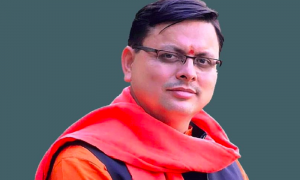Abrogation of Article 370 sections in Jammu and Kashmir and the construction of the Ram Temple in Ayodhya are two other moves that have seen success, while two other steps – the Citizenship Amendment Act (CAA) and three farm laws – have faced resistance and been stalled
The second edition of the Narendra Modi government has been marked by five major moves that have been on top of the agenda of the BJP – the Uniform Civil Code (UCC) is the final offering of that political recipe ahead of the crucial 2024 Lok Sabha battle.
Read More: Minority Communities Benefitted Most from Welfare Schems Under Modi Govt: BJP Minority Cell Leader
Two such moves have been game changers for the Bharatiya Janata Party – the first was an abrogation of Article 370 sections in Jammu and Kashmir soon after coming to power for a second term in 2019.
The second move was the bhoomi poojan ceremony of the Ram Temple in Ayodhya in 2020 after a favourable judgement from the Supreme Court.
Some in the BJP claim that the step to abrogate Article 370 sections was in the works in early 2019 too before the general elections but was put off after the Pulwama attack in J&K and the Balakot airstrike.
The Ram Temple is expected to be opened for public darshan in January next year, fulfilling the second major agenda of the BJP.
Two other moves, however, have not gone as envisaged.
One was the Citizenship Amendment Act (CAA) to give citizenship to persecuted minorities who are Hindus, Sikhs, Buddhists, Jains, Parsis, and Christians from Afghanistan, Bangladesh, and Pakistan.
The Shaheen Bagh protests and political opposition put the law on the back burner with the rules still not being framed after three years.
The other move was the farm laws – a major agenda of the Modi government aimed at improving the life of the farmer and enabling him to earn higher by the sale of produce in the private market.
But Punjab’s farmers made the government beat a retreat.
Read More: With Anti Conversion, Anti Cow Slaughter Bill In Focus, Karnataka Assembly Up For A Steamy Start
The final part of the 5-point recipe of the BJP before 2024 is the UCC on which there has been hectic activity at the Centre since last month.
First, the BJP promised implementation of the UCC in various states ruled by it, namely Madhya Pradesh, Uttar Pradesh, and Uttarakhand among others, to build an atmosphere of consensus over the acceptability of the law.
Then, last month, the Law Commission re-initiated the exercise to seek public opinion over the proposed legislation and has already got close to a million representations, which it is studying at lightning speed. It is expected that the Law Commission report could come soon.
Both the Prime Minister and the Law Minister have now publicly impressed upon the need for the UCC and a parliamentary panel held a hearing over this on Monday – leaving little to imagination over the government’s intention to bring the legislation to Parliament in the winter session this year, or even earlier if possible.
Many in the BJP feel the Uniform Civil Code could be the game changer for the party in the 2024 Lok Sabha elections, along with the inauguration of the Ram Temple. A pointer towards this is that the opposition has been caught in a bind on UCC, with the Congress even refraining from taking a clear stand.
Banking on the Supreme Court’s observations and the mention in the Constitution regarding the UCC, the BJP is aggressively projecting it as a reformist move that will enhance the quality of life of Muslim women, much like the scrapping of the triple talaq provision in the first edition of the Modi government.
With this, the BJP has laid out its cards ahead of the 2024 elections.





































